


1st solo exhibition in France –
ELI DE HAAS
I KNOW YOU
FR >
From 09 September to 21 October 2023
Opening Saturday 09 September, 16h - 20h
Starting Sunday, Sunday 15 October
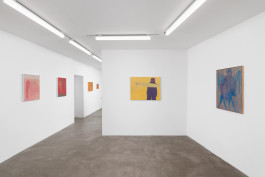
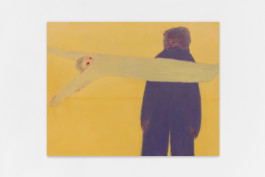
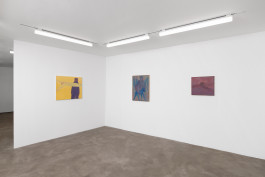
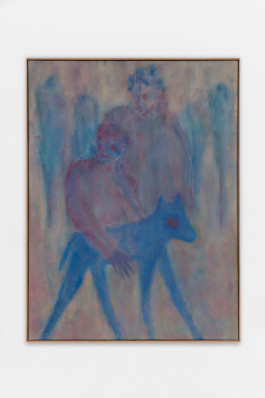
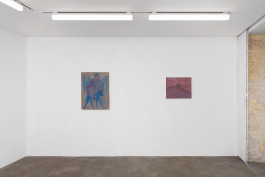
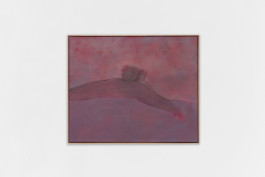
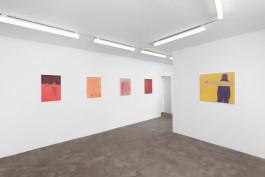
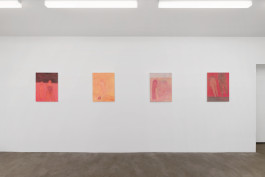
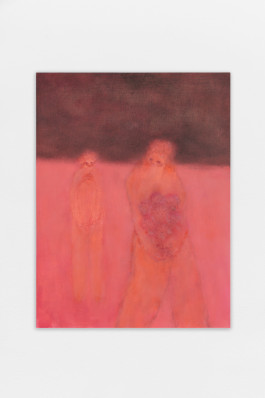
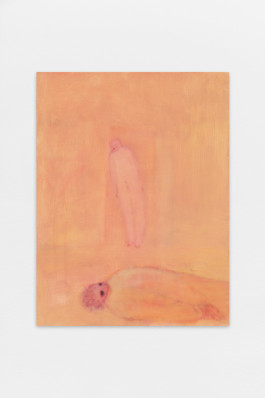
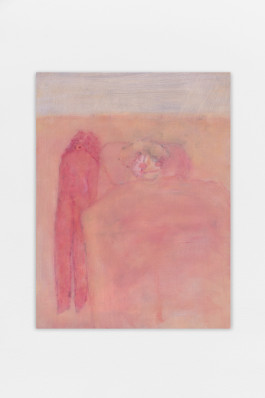
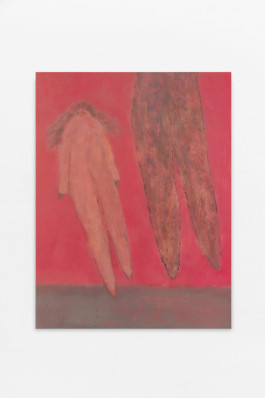
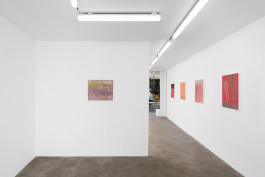
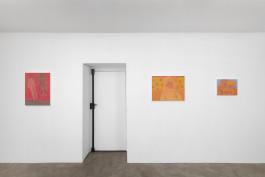
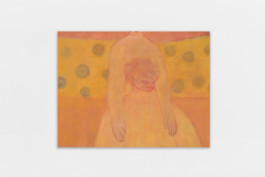
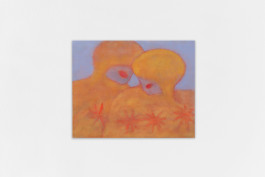
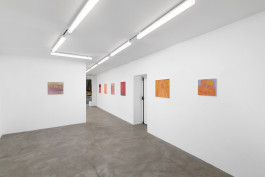
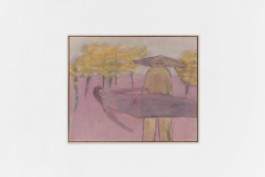
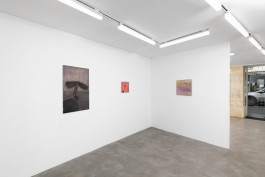
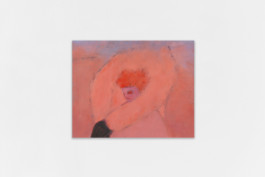
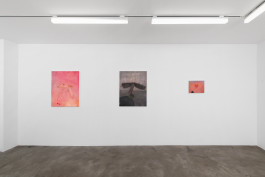
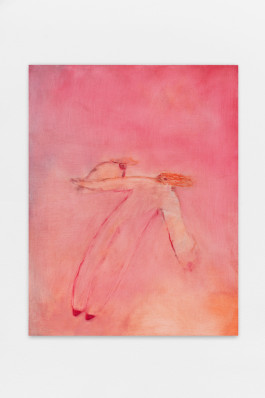
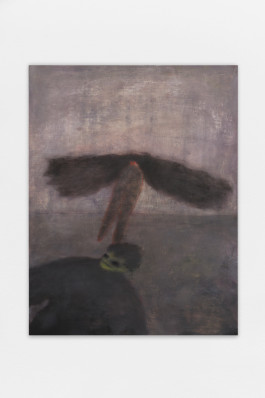
Exhibition views of I know you, Eli de Haas, 2023 - Photos : Aurélien Mole © GALERIE CHLOE SALGADO
Exhibition views of I know you, Eli de Haas, 2023 - Photos : Aurélien Mole © GALERIE CHLOE SALGADO
Exhibition views of I know you, Eli de Haas, 2023 - Photos : Aurélien Mole © GALERIE CHLOE SALGADO
Exhibition views of I know you, Eli de Haas, 2023 - Photos : Aurélien Mole © GALERIE CHLOE SALGADO
Exhibition views of I know you, Eli de Haas, 2023 - Photos : Aurélien Mole © GALERIE CHLOE SALGADO
Exhibition views of I know you, Eli de Haas, 2023 - Photos : Aurélien Mole © GALERIE CHLOE SALGADO
Exhibition views of I know you, Eli de Haas, 2023 - Photos : Aurélien Mole © GALERIE CHLOE SALGADO
Exhibition views of I know you, Eli de Haas, 2023 - Photos : Aurélien Mole © GALERIE CHLOE SALGADO
Exhibition views of I know you, Eli de Haas, 2023 - Photos : Aurélien Mole © GALERIE CHLOE SALGADO
Exhibition views of I know you, Eli de Haas, 2023 - Photos : Aurélien Mole © GALERIE CHLOE SALGADO
Exhibition views of I know you, Eli de Haas, 2023 - Photos : Aurélien Mole © GALERIE CHLOE SALGADO
Exhibition views of I know you, Eli de Haas, 2023 - Photos : Aurélien Mole © GALERIE CHLOE SALGADO
Exhibition views of I know you, Eli de Haas, 2023 - Photos : Aurélien Mole © GALERIE CHLOE SALGADO
Exhibition views of I know you, Eli de Haas, 2023 - Photos : Aurélien Mole © GALERIE CHLOE SALGADO
Exhibition views of I know you, Eli de Haas, 2023 - Photos : Aurélien Mole © GALERIE CHLOE SALGADO
Exhibition views of I know you, Eli de Haas, 2023 - Photos : Aurélien Mole © GALERIE CHLOE SALGADO
Exhibition views of I know you, Eli de Haas, 2023 - Photos : Aurélien Mole © GALERIE CHLOE SALGADO
Exhibition views of I know you, Eli de Haas, 2023 - Photos : Aurélien Mole © GALERIE CHLOE SALGADO
Exhibition views of I know you, Eli de Haas, 2023 - Photos : Aurélien Mole © GALERIE CHLOE SALGADO
Exhibition views of I know you, Eli de Haas, 2023 - Photos : Aurélien Mole © GALERIE CHLOE SALGADO
Exhibition views of I know you, Eli de Haas, 2023 - Photos : Aurélien Mole © GALERIE CHLOE SALGADO
Exhibition views of I know you, Eli de Haas, 2023 - Photos : Aurélien Mole © GALERIE CHLOE SALGADO
Exhibition views of I know you, Eli de Haas, 2023 - Photos : Aurélien Mole © GALERIE CHLOE SALGADO
« For his first solo exhibition in France, Eli de Haas (b. 1999, Rotterdam) chose a direct, straightforward, and almost intrusive address as a title. A statement that simultaneously engages its speaker — I — and the presence of another — You. Who is it? What is it?
I know you — I understand you. I recognize you. I notice you.
Starting with the title is primitive, even a little inappropriate. You can't judge a book by its cover. It's risky to want to understand the meaning in an instant; to grasp the whole before you've even scratched the surface. But the phrase here can be seen as the first image, the first meaningful key to the artist's work. In French, no sentence can quite match the density of possible meanings of the original formula, which is loaded with effective ambiguity. The question, then, is not to understand who is I, who is you, nor the object to be captured in the knowledge of knowing, but to sense the tension at hand. The resulting chiasmus - I know you / you know me - can be understood as the recurring and necessary form of Eli de Haas's work.
Before devoting himself to painting, Eli de Haas first studied photography. This shift in medium marks the first break with a form of representation of reality that would be seen as a single truth.
Many of the recent works presented in the exhibition reflect a new evolution in the artist's practice, who now prefers painting on wood to canvas. The rigidity of the surface allows him to multiply the number of layers, to scratch, to rub, to create and dissolve apparitions on the surface of the image, while maintaining the finesse of the material and the vibrancy of the colours. In this way, he further distances himself from a linear compositional framework whose sequential construction could be read at first glance. The image lives by itself, the hand moves faster than the mind, and what germinates for a moment in the painting may become an imperceptible spectre in a landscape that finally reveals itself before our eyes. Technique, then, is not an exercise in style. It is a means of shaping the relationship between the hand and the work, allowing the reciprocal intentions of both to coexist on the same plane, equally valued.
In this way, Eli de Haas grants his painting a form of autonomy that cannot be circumscribed by his intentions as the author. I know you - It's a gesture of recognition as well as an admission of irreducible ignorance - I know you (because I know that I will never fully know you... but I will never stop trying). The title, then, also indicates the point of departure: recognizing the existence of the other in their autonomous being, to allow the product of this relationship to come to fruition. The relational motif recurs at every level of the artist's work. A dualism invariably persists in each of his compositions. It induces a systematic tension, suggesting that the subject is less what appears before our eyes than what happens in the liminal space of the encounter between the ego and its alter. Sometimes a split, sometimes a ghost, a desire or a threat, this relationship is brought about by confrontation in a game of mirrors, by distancing, or by drawing closer together, or even by the confusion of bodies melting into one another. It grabs our attention and places it in the place of the unspeakable - the in-between.
Understood as such, Eli de Haas’s work moves beyond narrative processes towards a purely poetic language. How to conceive without knowing? Create without naming? Seize without touching?
The colourful worlds of de Haas's work are home to figures with discernible bodies that are nonetheless impossible to identify properly. They may be men, or women, or soft silhouettes; floating forms that melt into a landscape of textures. This dwelling of minimal perspectives, made up of a simple horizon line and tones of colour, becomes the gestation organ of a kind of ruminative mood. Orange, pink and brown contrast with bluish and black hues, plunging us into a new ambiguity concerning the content of the emotional atmosphere. The childlike or amorous dream is mixed with a sense of unease and confusion. Eli de Haas effectively seeks out this confusion, which seems to be the condition for formulating and receiving the emotions at work in the image. Joyful calm can be coupled with dull anxiety, and the reassuring hand on a shoulder can, at the same time, become the sign of a suffocating hold.
Once past the initial colour fields, expressiveness is concentrated in the details. It finds a home in certain attributes of the figures, which recur from canvas to canvas. Hairy masses sometimes extend like imposing living matter. Small faces, reduced to a few rigid lines, open onto large, gleaming eyes; hands are underlined by a vibrant halo, giving them the symbolic charge of connection to the other. The sensory organs that enable us to touch the world become, in painting, the windows of access to this zone of contact, at the limits of figuration and language.
Eli de Haas invites us to explore a world from within, via the complex, subterranean channels of affect that silently animate it. Testing our ability to conceive without understanding, to imagine without seeing or touching, he summons our childlike spirit to feel rather than to make sense. The stories we then tell ourselves in the presence of his images take on the form of fragmented dreams or fairy tales. Where verisimilitude is secondary, and gravity incidental, where bodies become mountains, where silhouettes are sketched in the shadows of trees, and where each face could be that of the person projected onto it. Without ever seeking to define a valid reality, using a sometimes naive free figuration, he tirelessly tries to give it a more lively, denser body. »
Noémie Pacaud
Translation by Katia Porro
_
Born in Rotterdam in 1999, Eli de Haas studied at the Düsseldorf Academy of Fine Arts and at the Gerrit Rietveld Academy in Amsterdam, before moving back to Rotterdam. After a solo show in Rotterdam in 2021, and several group shows in Rotterdam, Berlin, London and Brussels, he is now presenting his first solo show in France: I know you.